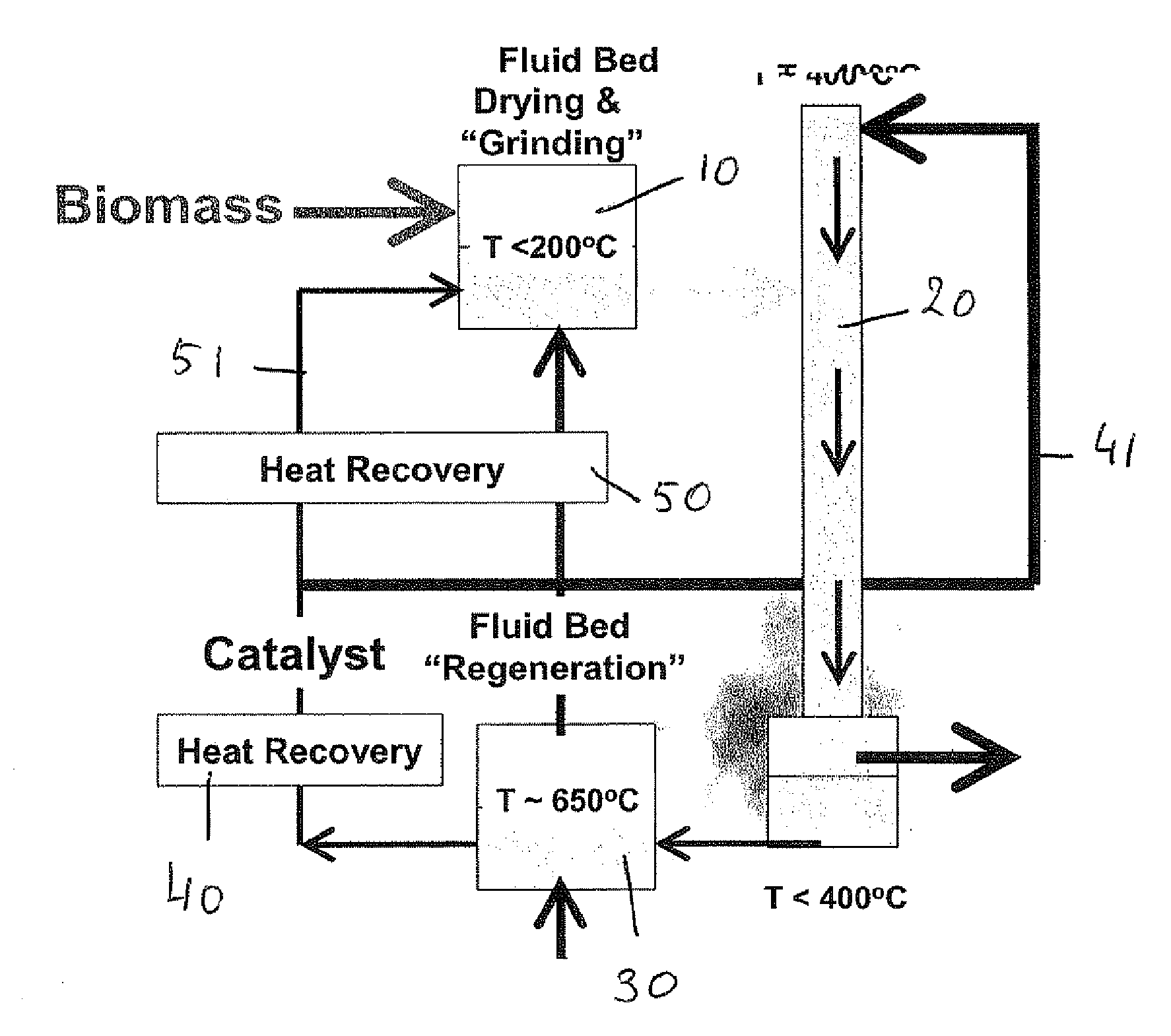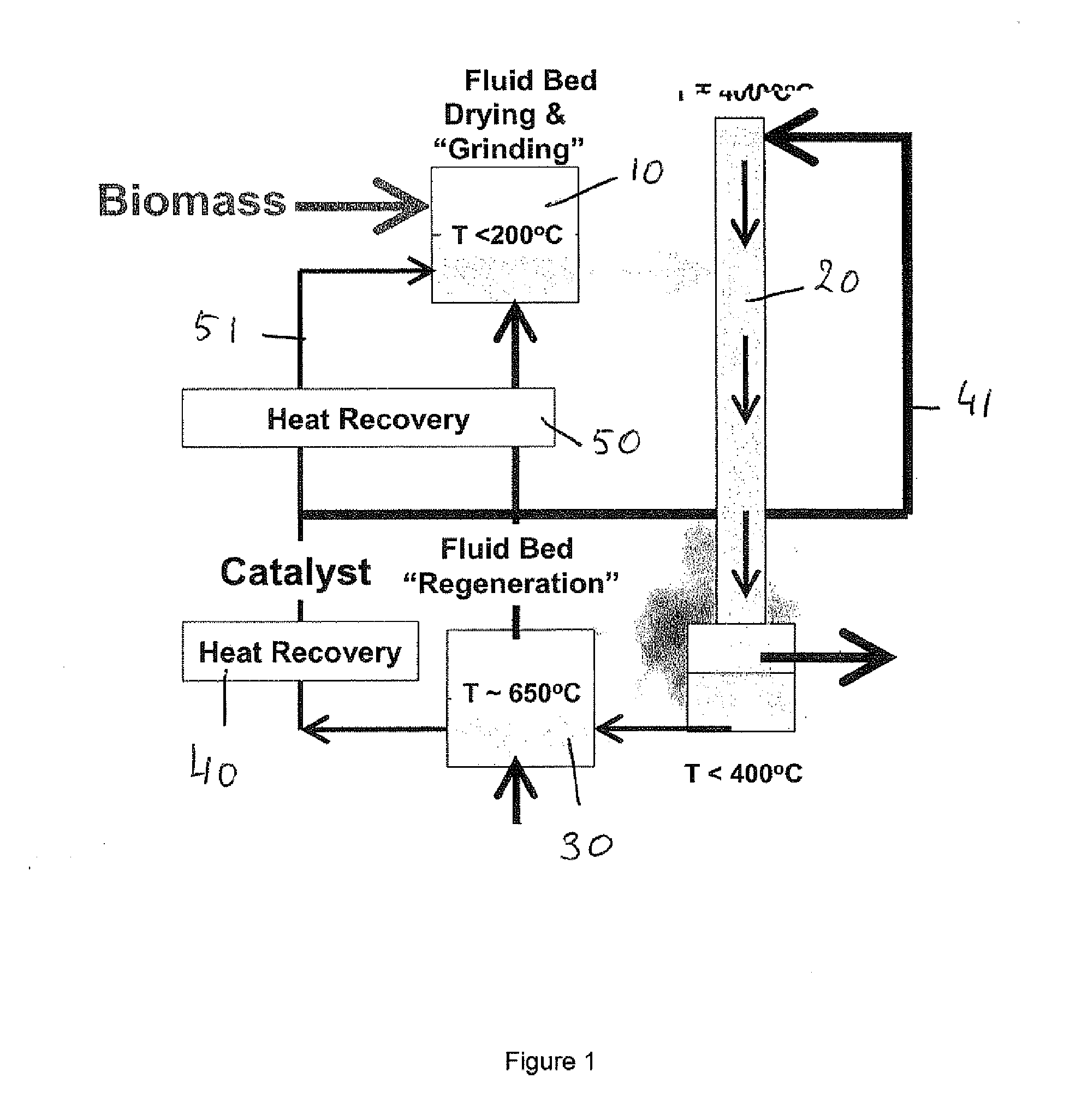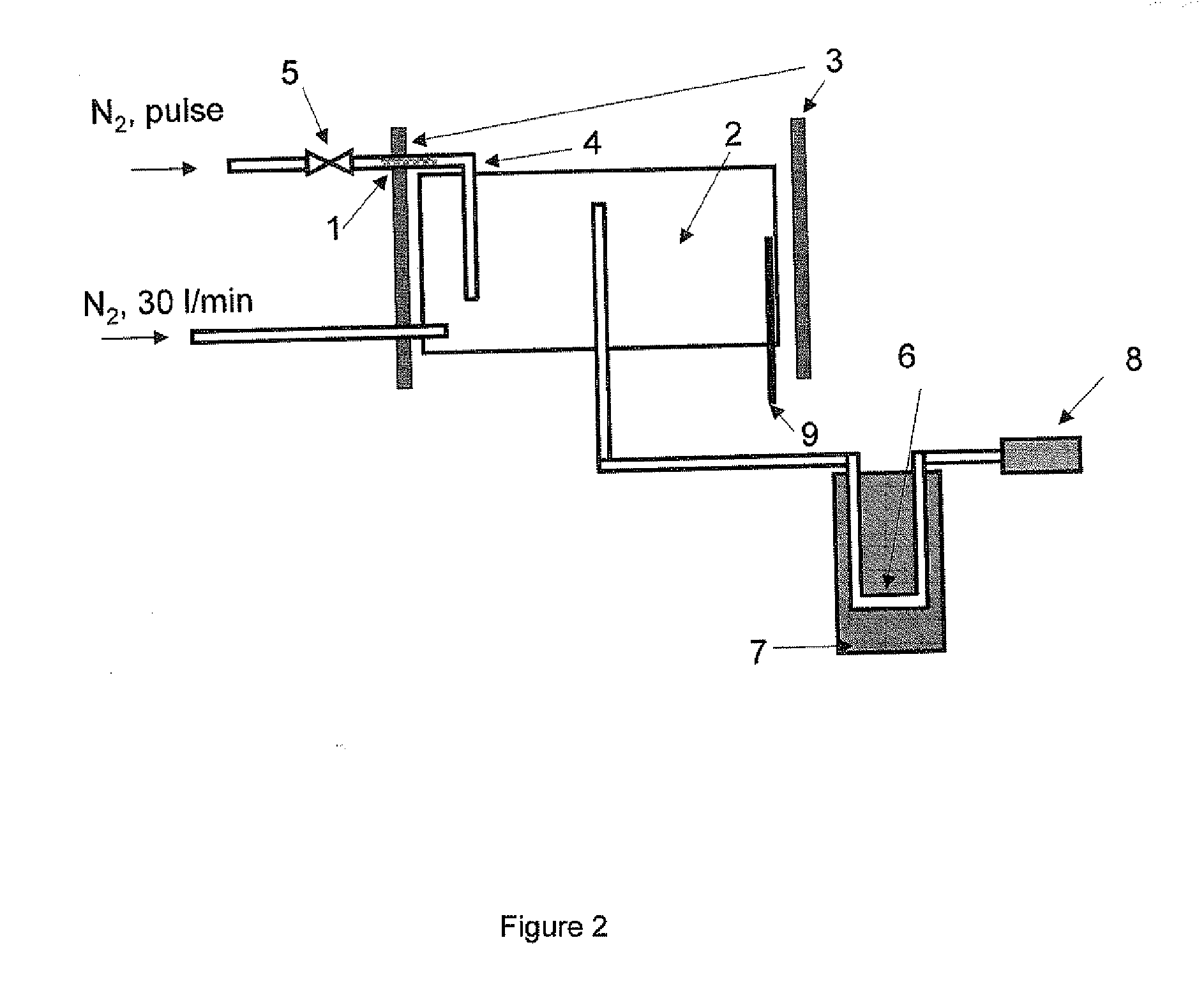Process for converting carbon-based energy carrier material
a technology of energy carrier material and catalyst, which is applied in the direction of physical/chemical process catalyst, metal/metal-oxide/metal-hydroxide catalyst, tar working up by chemical refining, etc., can solve the problem of significant deterioration of reaction products, reducing the yield of the reaction process, and deactivating catalyst particles
- Summary
- Abstract
- Description
- Claims
- Application Information
AI Technical Summary
Benefits of technology
Problems solved by technology
Method used
Image
Examples
Embodiment Construction
[0028]The following is a description of certain embodiments of the invention, given by way of example only.
[0029]In one aspect, the present invention relates to a pretreatment of particulate carbon-based energy carrier materials so as to make these materials susceptible to a conversion to a liquid fuel under relatively mild conditions.
[0030]The carbon-based energy carrier materials for use in the process of the present invention are solid materials and materials that could be classified as liquids, but having a very high viscosity. In this document, the materials will be referred to as “solid”. It will be understood that, as used herein, the term solid encompasses highly viscous liquids. In the case of tar sands, the “particles” comprise sand corns that are coated with tar. For the purpose of the present invention these coated sand corns are considered particles of a carbon-based energy carrier.
[0031]The materials can be formed into particles, which particles tend to retain their in...
PUM
| Property | Measurement | Unit |
|---|---|---|
| temperature | aaaaa | aaaaa |
| temperature | aaaaa | aaaaa |
| reaction temperature | aaaaa | aaaaa |
Abstract
Description
Claims
Application Information
 Login to View More
Login to View More - R&D
- Intellectual Property
- Life Sciences
- Materials
- Tech Scout
- Unparalleled Data Quality
- Higher Quality Content
- 60% Fewer Hallucinations
Browse by: Latest US Patents, China's latest patents, Technical Efficacy Thesaurus, Application Domain, Technology Topic, Popular Technical Reports.
© 2025 PatSnap. All rights reserved.Legal|Privacy policy|Modern Slavery Act Transparency Statement|Sitemap|About US| Contact US: help@patsnap.com



